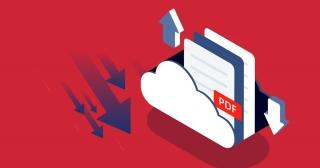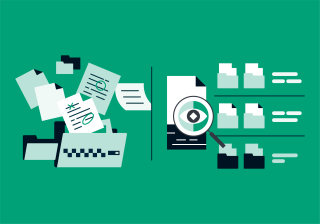How Compression Software Helps You Save on Cloud Storage Costs
Moving to cloud storage is a popular choice for organizations looking to strengthen security and support an agile or remote workforce.
With cloud storage, security updates are applied automatically, protecting your data from new and changing threats. And cloud storage enables real-time monitoring of issues and status outages, so problems can be quickly detected and resolved. If something does go wrong, backup services allow you to action disaster recovery and get things up and running once more.
Cloud storage also suits organizations with a distributed or remote workforce since tasks like deploying or updating software don’t require staff to be in the office.
However, those organizations with many files or very large files may find that cloud storage is more expensive than they might have anticipated. Fortunately, there is a simple and effective way to reduce file sizes and save on related costs.
Compress PDFs and save on cloud storage costs
Reducing PDF file size with compression software before you migrate to cloud storage can make a significant impact on your cloud storage costs.
Simply put, cloud storage costs are directly influenced by how much content you have. The more space your files take up, the more expensive they are to store.
Compressed PDFs also help you save on cloud egress costs since monthly rates are calculated on GBs.
Some industry regulations require businesses to retain documents and records for many years. Reducing these file sizes makes them cheaper to store and lessens the financial burden of meeting compliance standards.
Improve upload and download speeds
Smaller PDFs have faster transmission speeds, which is how long it takes to send them over the Internet. Because of this, they are also more mobile-friendly and more easily accessible to remote teams or people working from their devices on the go.
Compress many PDFs at once
Compressing thousands of legacy documents individually is not something many organizations have the bandwidth for. Automated compression processing can do the work for you, running in the background while you continue with business as usual.
Our compression software, contentCrawler, analyses a set of documents to determine if they can be compressed. If so, it passes them through for compression processing before saving the new, smaller file back into the original location.
Processing your documents through the contentCrawler compression framework before migrating to the cloud ensures you store your files in the most efficient and cost-effective way.
The compression software can be used in conjunction with an OCR module to add a text layer to scanned documents or other image-based files.
With both modules running in the background, you can save on cloud storage costs while ensuring files are accessible to everyone in your organization.




